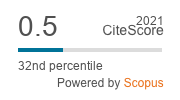Dias de insurreição em busca do sublime: as cenas punk portuguesa e brasileira
DOI:
https://doi.org/10.1590/s0102-6992-201934020006Palavras-chave:
punk, ethos DIY, autenticidade, discursos, representações sociaisResumo
Este artigo centra-se na explicação e compreensão das representações acerca da autenticidade estética, artística e vivencial por parte de atores das cenas punk portuguesa e brasileira num arco temporal que se situa entre 1977 e 2016. Baseia-se no princípio sociológico de que o conhecimento reflexivo dos atores sociais é matéria-prima de base para a reconstrução científica e, por tal, para o avanço na teoria social. Com base numa metodologia reflexiva, são três os objetivos específicos que perscrutamos: problematizar as complexas relações entre o ethos, a estética e a praxis do-it-yourself (DIY) e o estabelecimento do punk e das suas (sub)cenas em sociedades fora do eixo gravitacional da hegemonia anglo-saxónica; identificar o conjunto de atividades no espectro punk que configurem um ethos e uma praxis de autenticidade e, por último, elucidar, em termos weberianos, os sentidos/significados diversos contraditórios que os atores atribuem ao punk e respetivas vivências em termos de estilo e ideologia.
Downloads
Referências
ADAMS, Ruth. The Englishness of English punk: Sex Pistols, subcultures and nostalgia. Popular Music and Society, v. 31,n. 4, p. 469-488, 2008. [ Links ]
BENNETT, Andy. Music, style and aging: growing old disgracefully? Philadelphia (PA): Temple University Press, 2013. [ Links ]
____. Pour une réévaluation du concept de contre-culture, v. 1. La Revue des Musiques Populaires, v. 9, n. 1, p. 19-31, 2012. [ Links ]
____. Punk’s not dead: the continuing significance of punk rock for an older generation of fans. Sociology, v. 40, n. 2, p. 219-235, 2006. [ Links ]
____. Consolidating the music scenes perspective. Poetics, n. 32, p. 223-234, 2004. [ Links ]
BENNETT, Andy; PETERSON, Richard A. Music scenes: local, translocal and virtual. Nashville (TN): Vanderbilt University Press, 2004. [ Links ]
BOURDIEU, Pierre. As regras da arte. São Paulo: Companhia das Letras, 2002. [ Links ]
CARTLEDGE, Frank. Distress to impress? Local punk fashion and commodity exchange. In: SABIN, R. (Org.). Punk rock: so what? The cultural legacy of punk. London; New York: Routledge, 1999. [ Links ]
CLARK, Dylan. The Death and life of punk, the last subculture. In: MUGGLETON, D.; WEINZIREL, R. (Orgs.). The post-subcultures reader. Oxford (UK): Berg, 2003. [ Links ]
CLARKE, Gary. Defending ski-jumpers: a critique of theories of youth subcultures. In: FRITH, S.; GOODWIN, A. (Orgs.). On record: rock, pop and written word. London: Routledge, 1990 [ Links ]
COLEGRAVE, Stephen; SULLIVAN, Chris. Punk: hors limites. Paris: Les Éditions du Seuil, 2002. [ Links ]
CROSSLEY, Nick. Pretty connected: the social network of the early UK punk movement. Theory, Culture & Society, v. 25, n. 6, p. 89-116, 2008. [ Links ]
DINES, Mike. An investigation into the emergence of the anarcho-punk scene of the 1980s. Salford (UK): University of Salford, 2004. [ Links ]
DUNN, Kevin C. Never mind the bollocks: the punk rock politics of global communication. Review of International Studies, v. 34, p. 193-210, 2008. [ Links ]
FRITH, Simon. Sound effects: youth, leisure, and the politics of rock. London: Constable, 1983. [ Links ]
GARNETT, Robert. Too low to be low: art pop and the Sex Pistols. In: SABIN, R. (Org.). Punk rock: so what? The cultural legacy of punk. London; New York: Routledge, 1999. [ Links ]
GUERRA, Paula. Raw power: punk, DIY and underground cultures as spaces of resistance in contemporary Portugal. Cultural Sociology, v. 12, n. 2, p. 241-259, 2018. [ Links ]
____. “Just can’t go to sleep”. DIY cultures and alternative economies facing social theory. Portuguese Journal of Social Sciences, v. 16, n. 3, p. 283-303, 2017. [ Links ]
____. Keep it rocking: the social space of Portuguese alternative rock (1980-2010). Journal of Sociology, v. 52, n. 4, p. 615-630, 2016. [ Links ]
____. Punk, expectations, breaches, and metamorfoses. Critical Arts, v. 28, n.1, p. 195-211, 2014. [ Links ]
____. A instável leveza do rock: gênese, dinâmica e consolidação do rock alternativo em Portugal (1980-2010). Porto: Afrontamento, 2013. [ Links ]
GUERRA, Paula; BENNETT, Andy. Never mind the Pistols? The legacy and authenticity of the Sex Pistols in Portugal. Popular Music and Society, v. 38, n. 4, p. 500-521, 2015. [ Links ]
GUERRA, Paula; STRAW, Will. I wanna be your punk: o universo de possíveis do punk, do DIY e das culturas underground. Cadernos de Arte e Antropologia, v. 6, n. 1, p. 5-16, 2017. [ Links ]
HAENFLER, Ross. Straight edge: clean-living youth, hardcore punk, and social change. New Jersey: Rutgers, 2015. [ Links ]
____. Subcultures: the basics. Abingdon (UK): Routledge, 2014. [ Links ]
HEBDIGE, Dick. Subcultura. O significado do estilo. Lisboa: Maldoror, 2018. [ Links ]
HESMONDHALGH, David. Post-punk’s attempt to democratise the music industry: the success and failure of rough trade. Popular Music, v. 16, n. 3, p. 255-274, 1997. [ Links ]
JAMES, Kieran. “This is England”: punk rock’s realist/idealist dialectic and its implications for critical accounting education. Accounting Forum, v. 33, n. 2, p. 127-145, 2009. [ Links ]
LAING, Dave. One chord wonders: power and meaning in punk rock. Oakland (CA): PM Press, 2015. [ Links ]
____. Interpreting punk rock. Marxism Today, p. 123-128, Apr. 1978. [ Links ]
LAWLEY, Guy. “I like hate and i hate everything else”: the influence of punk on Comics. In: SABIN, R. (Org.). Punk rock: so what? The cultural legacy of punk. London; New York: Routledge, 1999. [ Links ]
LENTINI, Pete. Punk’s origins: Anglo-American syncretism. Journal of Intercultural Studies, v. 24, n. 2, p. 153-174, 2003. [ Links ]
LETTS, Don; NOBAKHT, David. Culture clash: dread meets punk rockers. London: SAF Publishing, 2008. [ Links ]
LEWIN, Phillip; WILLIAMS, J. Patrick. The ideology and practice of authenticity in punk subculture. In: VIANNINI, P.; PATRICK WILLIAMS, J. (Orgs.). Authenticity in culture, self and society. Surrey (UK): Ashgate Publishing, 2009. [ Links ]
MARCUS, Greil. Marcas de baton: uma história secreta do século vinte. Lisboa: Frenesi, 2000. [ Links ]
MASTERS, Marc. No wave. London: Black Dog Publishing, 2007. [ Links ]
MATULA, Theodore. Pow! to the people: The make-up's reorganization of punk rhetoric, v. 1. Popular Music and Society, v. 30, n. 1, p. 19-38, 2007. [ Links ]
MOORE, Ryan. Postmodernism and punk subculture: cultures of authenticity and deconstruction. The Comunication Review, v. 7, n. 3, p. 305-327, 2004. [ Links ]
MUGGLETON, David. Inside subculture: the postmodern meaning of style. Oxford (UK): Berg, 2000. [ Links ]
MUGGLETON, David; WEINZIERL, Rupert. What is “post-subcultural studies” anyway? In: MUGGLETON, David; WEINZIERL, Rupert (Orgs.). The post-subcultures reader. Oxford (UK): Berg, 2003. [ Links ]
NILAN, Pam; FEIXA, Carles. Global youth? Hybrid identities, plural worlds. New York: Routledge, 2006. [ Links ]
O’CONNOR, Alan. Local scenes and dangerous crossroads: punk and theories of cultural hybridity. Popular Music, v. 21, n. 2, p. 225-237, 2002. [ Links ]
O’HARA, Craig. The philosophy of punk: more than noise! London; Edinburgh; San Francisco (CA): AK Press, 1999. [ Links ]
PAIS, José Machado. Culturas juvenis. Lisboa: Imprensa Nacional Casa da Moeda, 2003. [ Links ]
PAIS, José Machado; BLASS, Leila. Tribos urbanas: produção artística de identidades. Lisboa: Imprensa de Ciências Sociais, 2004. [ Links ]
REYNOLDS, Simon. Bring the noise: 20 years of writing about hip rock and hip hop.London: Faber and Faber, 2007. [ Links ]
RODRIGUES, Stella. In-Edit 2012 tem como convidado o renomado diretor Don Letts. Rolling Stone Brasil, 1 Jun. 2012. [ Links ]
SABIN, R. (Org.). Punk rock: so what? The cultural legacy of punk. London; New York: Routledge, 1999. [ Links ]
SILVA, Augusto Santos; GUERRA, Paula. As palavras do punk. Lisboa: Alêtheia, 2015. [ Links ]
SIMMEL, Georg. El individuo y la libertad - ensayos de critica de la cultura. Barcelona (ES): Peninsula, 2001. [ Links ]
THOMPSON, Stacy. Punk productions: unfinished business. New York: State University of New York Press, 2004. [ Links ]
THORNTON, Sarah. Club cultures: music, media and subcultural capital. Hannover (DE): Wesleyan University Press, 1996. [ Links ]
WOLIN, Richard. Walter Benjamin: an aesthetic of redemption. New York: Columbia University Press, 1982. [ Links ]
REGISTOS FONOGRÁFICOS
ALBERT FISH. City rats. City rats. Lisboa: Zeroworks Records. EP (vinil), 2012. [ Links ]
AQUI D’EL-ROCK. Dedicada (a quem nos rouba) / Eu não sei. Lisboa: Metro Som. 7"Single (vinil) (4m 19’), 1979. [ Links ]
CÃES VADIOS. Cães vadios. Cães vadios. Lisboa: Ama Romanta. EP (vinil), 1987. [ Links ]
KÚ DE JUDAS. Quero ser eu. As vozes da raiva 03 . Lisboa: Fast’n’Loud. Compilação (CD), 1996. [ Links ]
MINAS & ARMADILHAS. Lisboa a arder. Lisboa: Edição de aautor (cassete), 1978. [ Links ]
NEW WINDS. The real Judas syndrome. A spirit filled revolution. Lisboa: Refuse Records. LP (CD) (2m 20’), 2004. [ Links ]
RENEGADOS DE BOLIQUEIME. Lado de ninguém. Ao Vivo no Hardclub. Porto. Alfinete Records. LP (CDR), 1997. [ Links ]
X-ACTO. Para o sol brilhar. Harmony as one. Lisboa: Ataque Sonoro. LP (CD), 1995. [ Links ]
XUTOS & PONTAPÉS. Remar, remar. Remar, remar. Lisboa: Fundação Atlântica. Single (vinil), 1984. [ Links ]
ZOOTIC. Lifetime war. Coisa Nenhuma. Lisboa: Difusion Libertária La Idea. LP (CD), 2001. [ Links ]
REGISTOS VIDEOGRÁFICOS
CIAMPONE, Laura; KUROSTU, Kelvin; BELARMINO, Daniela; TELES, Mariana; ALBUQUERQUE, Marcella. Subversão em movimento - a história do punk em SP. Documentário, 2016. Disponível em: <https://www.youtube.com/watch?v=iwnwYDJazuo>. Acesso em: 15 Jun. 2017. [ Links ]
FONTENELE, Flor. Tudo o que é belo é podre. Documentário , 2016. Disponível em: <https://www.youtube.com/watch?v=GYduaKuVcGU>. Acesso em: 15 Jun. 2017. [ Links ]
KISMIF. KEEP IT SIMPLE, MAKE IT FAST! Bastardos. Trajetos do punk português (1977-2014). Documentário, 2015. Disponível em: <https://www.youtube.com/watch?v=Zk7eDn6YWQs>. Acesso em: 15 Jun. 2017. [ Links ]
MOREIRA, Gastão. Botinada. A origem do punk no Brasil. Documentário, 2006. Disponível em: <https://www.youtube.com/watch?v=trIAXkc003k>. Acesso em: 15 Jun. 2017. [ Links ]
YAKAMI, Sara; GIECO, Alberto. Punks, 1983. Documentário, 1983. Disponível em: <https://www.youtube.com/watch?v=Ba7jKBM0tIw>. Acesso em: 15 Jun. 2017.



.jpg)




















